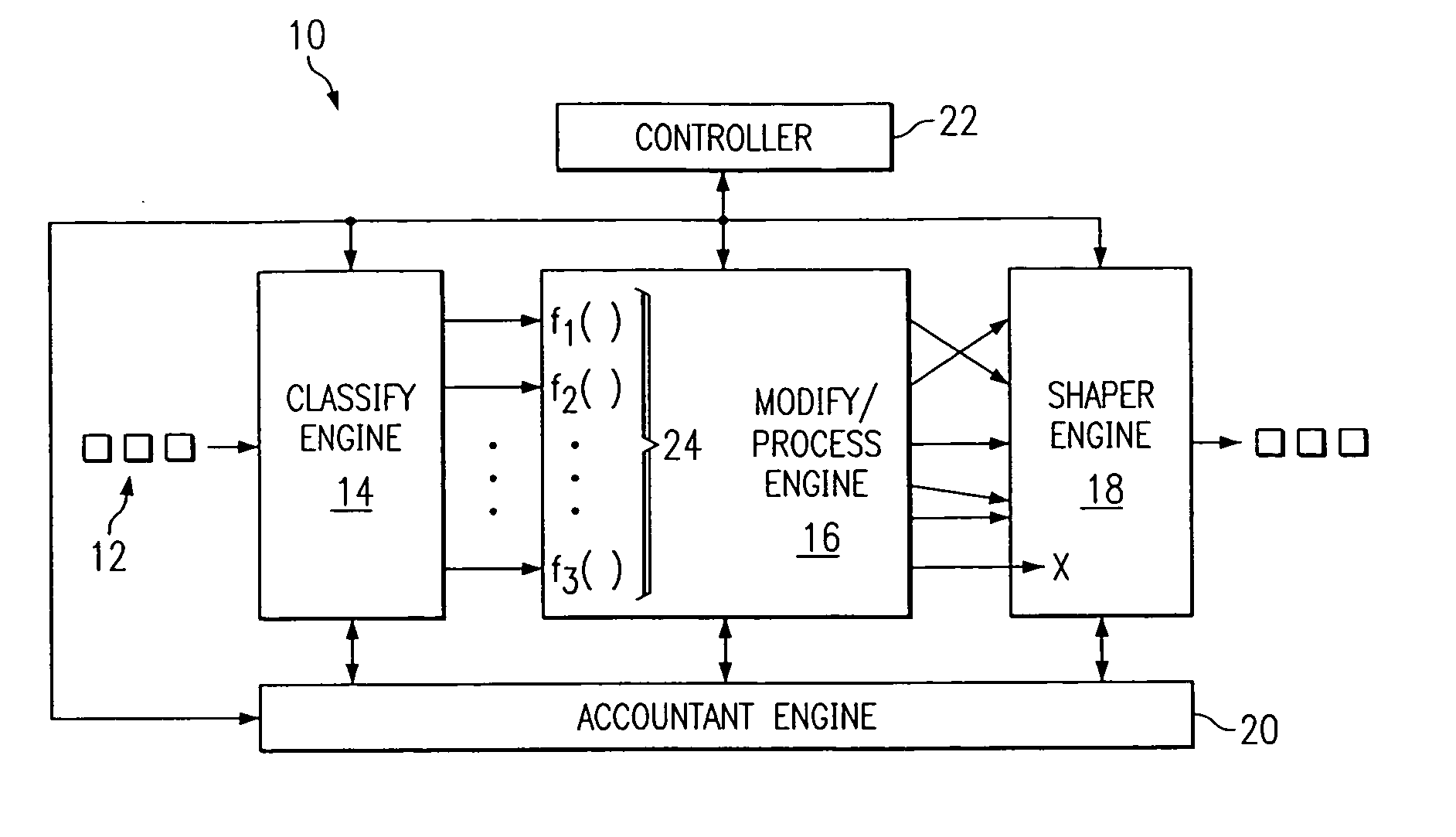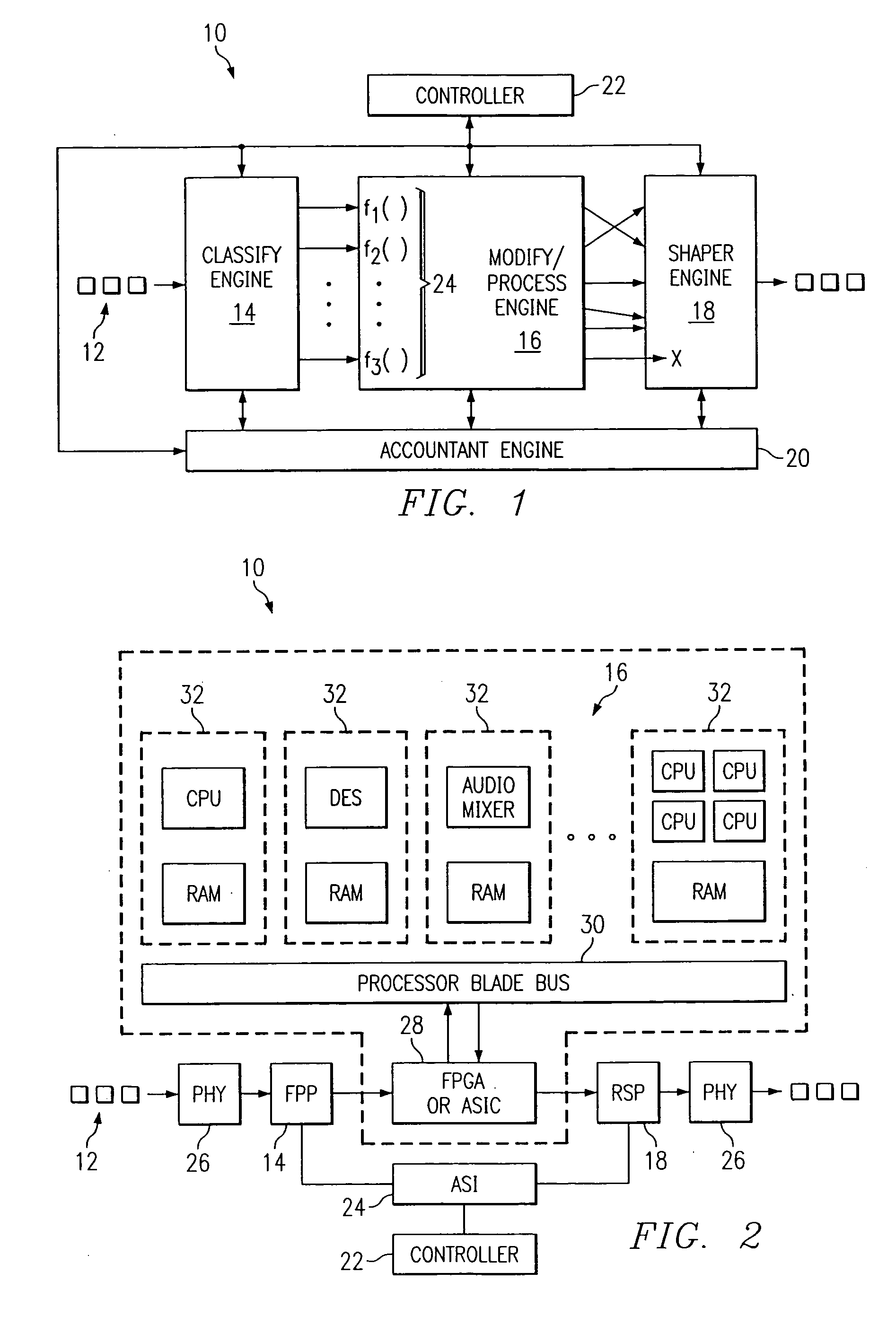System and method for processing network packet flows
a network packet and flow technology, applied in the field of system and method for processing network packet flow, can solve the problems of slow data transfer rate, inefficient use of isp infrastructure, and loss of reliability of isp service, and the ability, available at end points, to achieve the effect of reducing the capacity of broadband customer modems, and improving the reliability of isp services
- Summary
- Abstract
- Description
- Claims
- Application Information
AI Technical Summary
Benefits of technology
Problems solved by technology
Method used
Image
Examples
Embodiment Construction
[0017] Preferred embodiments of the present invention are illustrated in the figures, like numerals being used to refer to like and corresponding parts of the various drawings.
[0018] Building a service for a network presents a substantial task which is often time consuming and expensive. For instance, years often pass from the development and approval of a business case through the design and provisioning of a service on a network. The conventional development and provisioning of a service on a best effort network, such as the Internet or intranets that use TCP\IP, are difficult to design and deploy, typically requiring design from scratch and custom equipment. Even once a service is deployed on a best effort network, modification of the service over time presents a continuing problem.
[0019] One solution that eases the development and deployment of services on a best effort network is to deploy broadband network nodes on the edges of the network, such as the advanced traffic proce...
PUM
 Login to View More
Login to View More Abstract
Description
Claims
Application Information
 Login to View More
Login to View More - R&D
- Intellectual Property
- Life Sciences
- Materials
- Tech Scout
- Unparalleled Data Quality
- Higher Quality Content
- 60% Fewer Hallucinations
Browse by: Latest US Patents, China's latest patents, Technical Efficacy Thesaurus, Application Domain, Technology Topic, Popular Technical Reports.
© 2025 PatSnap. All rights reserved.Legal|Privacy policy|Modern Slavery Act Transparency Statement|Sitemap|About US| Contact US: help@patsnap.com


